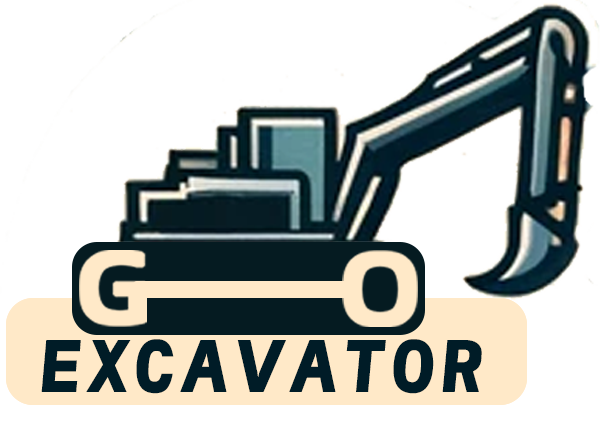
Mini excavators, also known as compact excavators, are a type of construction equipment used for a variety of tasks such as digging, lifting, and trenching. These machines are smaller than standard excavators, making them ideal for work in tight spaces. In this article, we will explore the features, uses, and benefits of mini excavators, providing a detailed understanding of these versatile machines.
What is a Mini Excavator?
A mini excavator is a construction machine that consists of a rotating cab mounted on a compact undercarriage. The undercarriage is equipped with tracks or wheels that allow the machine to move across different terrains. Mini excavators are equipped with an attachment, usually a bucket, at the end of a boom and arm, which can be used for various digging and lifting tasks.
Features of Mini Excavators
Size and Weight: Mini excavators typically weigh less than 10 tons. Their compact size allows them to operate in areas where larger machines cannot reach.
Engine Power: Despite their small size, mini excavators have powerful engines that provide enough power to handle challenging tasks.
Attachments: In addition to standard buckets, mini excavators can be fitted with various attachments such as augers, grapples, and hammers, enhancing their versatility.
Mobility: Equipped with tracks, mini excavators can maneuver over rough terrain. Some models also have zero tail swing or reduced tail swing, which makes them even more suitable for confined spaces.

Uses of Mini Excavators
Mini excavators are used in a wide range of applications, from construction and landscaping to utility work. Here are some common uses:
Excavation: Mini excavators are perfect for digging holes, foundations, and trenches.
Demolition: With the right attachments, they can be used for breaking down small structures.
Landscaping: Mini excavators are used for tree planting, contouring land, and installing irrigation systems.
Utility Work: Their compact size makes them ideal for working on public utility projects, such as water and sewer line repairs, without causing major disruptions.
Benefits of Mini Excavators
Accessibility: Their small size allows them to access and work in confined or restricted areas.
Efficiency: Mini excavators are designed to perform tasks quickly and with precision, increasing productivity.
Cost-effectiveness: They are generally cheaper to rent or buy than larger excavators and can reduce labor costs by performing tasks that would otherwise require manual labor.
Ease of Operation: Mini excavators are easier to operate than larger machines, making them a good choice for less experienced operators.

Choosing the Right Mini Excavator
When selecting a mini excavator, consider the following factors:
Weight and Size: Make sure the machine fits the work environment and can be transported easily.
Engine Power: Choose a model with enough power to handle the tasks it will be used for.
Attachment Compatibility: Consider what attachments are available and whether they meet your needs.
Comfort and Safety Features: Look for machines with comfortable cabs and good safety features.
Maintenance of Mini Excavators
Proper maintenance is crucial to ensure the longevity and efficiency of mini excavators. Regular maintenance tasks include checking fluid levels, inspecting tracks or wheels, and cleaning the machine to prevent buildup of dirt and debris.
Mini excavators are a versatile and efficient tool for a variety of construction, landscaping, and utility tasks. With their compact size and ability to be equipped with multiple attachments, they offer a flexible solution for many projects. When choosing a mini excavator, consider your specific needs and the features that will best suit your projects. With proper maintenance, a mini excavator can be a valuable addition to any fleet, providing effective solutions for many challenging tasks.
A Comprehensive Guide to Buying a Excavator Second Hand
Purchasing a second-hand excavator can be a cost-effective solution for your construction or landscaping needs. However, buying used machinery comes with its own set of challenges and considerations. This comprehensive guide will walk you through [...]
Comprehensive Guide to Hyundai Mini Excavators: Features and Prices
Mini excavators have become indispensable tools in the construction and landscaping industries. Hyundai Construction Equipment, a global leader in heavy machinery, offers a range of mini excavators known for their reliability, efficiency, and advanced features. [...]
How to Extend the Service Life of Excavator Parts
Excavators are indispensable machines in the construction and mining industries. They perform heavy-duty tasks that demand robust components and meticulous maintenance. Extending the service life of excavator parts not only reduces operational costs but enhances [...]
Kymron Excavators: Innovative, Sustainable Construction Machinery
In the dynamic world of construction and heavy machinery, Kymron has emerged as a game-changer. Specializing in advanced excavator technology, Kymron is redefining industry standards with its commitment to innovation, efficiency, and sustainability. Company Overview [...]
Bulldozer vs. Wheeled Excavator: Which Machine is Better for Moving Soil?
Moving soil is a fundamental task in construction, landscaping, and earthmoving projects. Choosing the right machinery for the job can significantly impact efficiency, cost, and project timelines. Two of the most commonly used machines for [...]
Why Are Small Excavators Favored? A Comprehensive Guide
In the world of construction and landscaping, efficiency and versatility are key. Among the myriad of machinery available, small excavators have risen in popularity. But what makes them so favored? Introduction to Small Excavators Small [...]




